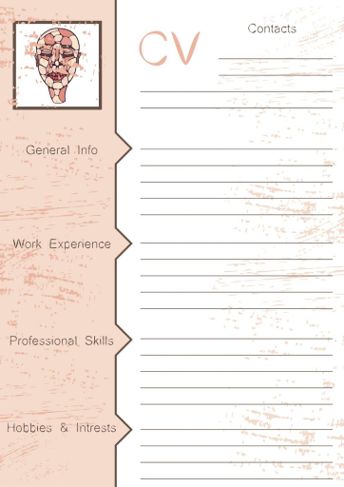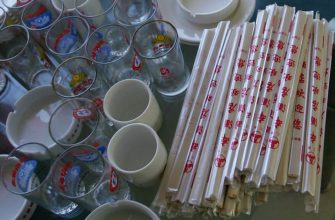If you didn't take Latin in high school, you might not know that curriculum vitae literally translates to mean the course of life. A CV is a different type of resume that brings together your professional, personal, and educational experiences together to prove you're fully qualified for a position you've applied for. A curriculum vitae is more flexible and descriptive than a resume because you get the opportunity to include factors and skills that wouldn't be found in a traditional resume. This guide will help you create a fantastic CV and hopefully help you land your dream job!
New Job Application = Revised Curriculum Vitae
One of the biggest mistakes people make when hunting for a new job is using the same, exact resume for every position they apply for. More successful applicants tailor each curriculum vitae to correspond to the skills and proficiencies required of the potential post. The best course of action when applying for a new job is to conduct research into the company and discover what experiences, skills, and personality traits are desired for the post.
Conduct a Brainstorming Session
After you've conducted a little bit of research into the company or organization that you want to work for it is vital to compile a list of your skills, work experiences, education, qualifications, achievements, references, and interests. Depending on the position that you're applying for you can include a wide range of information that can help prove you're the right individual for the job. Try to think out of the box when brainstorming about what details to include in your CV.
Ensure You Complete All the Required Tasks!
There are many organizations and company's who utilize resumes as a way to weed out those individuals who don't meet their qualifications. Most companies will also require applicants to submit additional information on their curriculum vitae. Carefully read the post regarding the position you're interested in. Do they require writing samples? How about a background or credit inquiry? Does the employer want to know your availability? It's vital that you follow any and all directions found in the job's posting. Applicants who ignore these crucial instructions are often quickly dismissed as unsuccessful candidates.
Document Your Work Experience
Future employers want to know their candidates are capable of performing the tasks required of the job they're applying for. The best way to illustrate these skills is by providing documentation of your past and present work experience with other company's and organizations.Compose a list of everywhere you've worked and see if they share common requirements to the job in which you're applying for. If you had a summer job in high school picking apples and you're applying for a bank teller position, it's unlikely you'll need to include that work experience in your tailored resume. However, if you've held a post that compliments your desired position, then make sure to include it in your curriculum vitae. Traditionally, the work experience section of the resume will begin with your current or most recent job. Include when you began your employment and when it concluded. Many resumes opt to include job titles too.
Use Your Interests to Illustrate Your Personality
Any writer will tell you, the most important aspect of any written task is knowing who the audience is. This is true of a successful CV too. The more information you have about the organization that you're applying for, the better chance you'll be able to hone your resume and express your full potential as a candidate.Different roles will require different skills. For example, a stage manager will need to be able to prioritize and quickly solve problems. While a night-time security guard will need to be self-sufficient and capable of monitoring their progress at work. Use your interests and hobbies to illustrate how appropriate you are for the position. Be careful when including these interests and hobbies on your resume. Ask yourself if the interest represents you in the best way? If it doesn't, don't add it to your curriculum vitae.
Document Skills which Separate You from the Rest of the Candidate Pool
Resumes are an ever-changing medium, and due to the prolific nature of the internet, this is becoming a standard. Different schools of thought exist about the qualifications and skill section on resumes. One method is to provide a section comprised of bullet points demonstrating relevant qualifications which are located directly beneath the applicant's contact information. Another popular format is to list the skills in a separate section following the work experience documentation. Either method is acceptable, but remember only to include the adequacies applicable to the job you're applying for.
Deciding on a Resume Format
A simple search on the web will provide a wealth of formatting suggestions for your curriculum vitae. There are a few factors that must be included in your resume and generally follow the layout described below.
- Name
- Contact Information
- Objective: the objective is your take on the role you're applying for. Job seekers frequently include their skills which meet this objective.
- Education
- Work Experience
- Interests
- References
This is a basic and generalized format. Word processing software offers several free templates that allow you to type in your details without any fuss. A helpful hint to the wise work seekers is to search for sample resumes in your field and use these templates as to guide your own curriculum vitae construction.
Miscellaneous Information
Many applicants will have gaps in their employment records, breaks in their educational experiences, or any variety of circumstances that don't fit in the other traditional categories found in a resume. It's critical to include these lapses in time and other oddities for your potential employer's information. The department of human resources is looking for inconsistencies and errors on your resume.This fact makes sense when you view it from the hirer's perspective. The employer must reduce the applicant pool somehow and by whittling down candidates who neglect to explain unusual circumstances on the resume are an easy way to narrow down the pool of potential hires.
Supplying References
Another debated element of the curriculum vitae is the reference section. Some applicants state that they'll provide references upon request. Other candidates provide them on the submitted resume. References are people who you've worked with in the past who can vouch for your experience, skills, and personality. Only include people who have great things to say about you. It's vital that you contact your reference and ask their permission before including them in your application. It's good manners and proper practice to ensure you've got the right contact information.
Proofread and Submit!
Proofreading your curriculum vitae might be the most important element of drafting a successful resume. Errors, falsehoods, incorrect dates can all land your CV in the slush pile at your dream job's human resources department. Be honest, accurate, and take the time to carefully review your resume before sending it off to your potential employer. A word of warning about sending a resume via email, many times the uploading of a resume to a job board or employment website will mess with your CV's format. Don't be disappointed you didn't get an interview! Always double check your work. Ask a trusted friend to review your resume and take your time. Good Luck!!!

 Home
Home Health
Health Diet & Nutrition
Diet & Nutrition Living Well
Living Well More
More




















